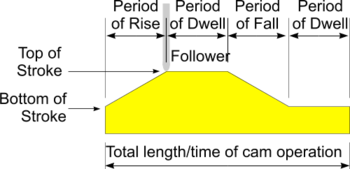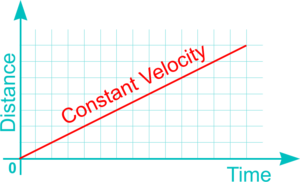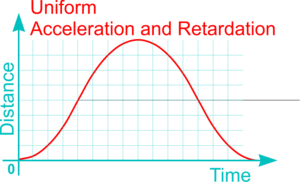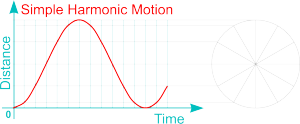Displacement Diagram: Difference between revisions
From DT Online
No edit summary |
(Changed Images) |
||
| Line 1: | Line 1: | ||
[[File:DisplacementDiagram. | [[File:DisplacementDiagram.png|350px|right]] | ||
A [https://en.wikipedia.org/wiki/Cam#Displacement_diagram '''Displacement Diagram'''] is essentially a graph which plots the movement of a '''cam follower''' against time. Since the cam's movement is usually constant then equal time intervals can be represented by equal distances along the horizontal axis and the resulting follower movement ''(or ‘displacement’)'' along the vertical axis. | A [https://en.wikipedia.org/wiki/Cam#Displacement_diagram '''Displacement Diagram'''] is essentially a graph which plots the movement of a '''cam follower''' against time. Since the cam's movement is usually constant then equal time intervals can be represented by equal distances along the horizontal axis and the resulting follower movement ''(or ‘displacement’)'' along the vertical axis. | ||
| Line 11: | Line 11: | ||
| '''-''' | | '''-''' | ||
| The follower simply rises or falls from one position to another at a constant speed: it is represented by a straight line on the graph as shown. | | The follower simply rises or falls from one position to another at a constant speed: it is represented by a straight line on the graph as shown. | ||
| [[File:CV.png|300px|right]] | |||
|- | |- | ||
| [https://en.wikipedia.org/wiki/Acceleration#Uniform_acceleration '''Uniform Acceleration and Retardation (UAR)'''] | | [https://en.wikipedia.org/wiki/Acceleration#Uniform_acceleration '''Uniform Acceleration and Retardation (UAR)'''] | ||
| '''-''' | | '''-''' | ||
| The follower rises and falls as if a ball thrown in the air: this motion is represented by a '''[[parabola]]''' on the graph. | | The follower rises and falls as if a ball thrown in the air: this motion is represented by a '''[[parabola]]''' on the graph. | ||
| [[File:UAR.png|300px|right]] | |||
|- | |- | ||
| [https://en.wikipedia.org/wiki/Simple_harmonic_motion '''Simple Harmonic Motion (SHM)'''] | | [https://en.wikipedia.org/wiki/Simple_harmonic_motion '''Simple Harmonic Motion (SHM)'''] | ||
| '''-''' | | '''-''' | ||
| This is defined as ''the projection of a point on the diameter as it moves around a circle with [https://en.wikipedia.org/wiki/Angular_velocity '''uniform angular velocity''']''. It is the motion of a [https://en.wikipedia.org/wiki/Pendulum pendulum] or [https://en.wikipedia.org/wiki/Spring_%28device%29 '''bouncing spring'''] and provides a very smooth transition between rise and fall. This follower movement is approximated by an '''[[Eccentric Cam]]''' but can be more precisely plotted on the graph using a [https://en.wikipedia.org/wiki/Sine_wave '''Sine Curve''']. | | This is defined as ''the projection of a point on the diameter as it moves around a circle with [https://en.wikipedia.org/wiki/Angular_velocity '''uniform angular velocity''']''. It is the motion of a [https://en.wikipedia.org/wiki/Pendulum pendulum] or [https://en.wikipedia.org/wiki/Spring_%28device%29 '''bouncing spring'''] and provides a very smooth transition between rise and fall. This follower movement is approximated by an '''[[Eccentric Cam]]''' but can be more precisely plotted on the graph using a [https://en.wikipedia.org/wiki/Sine_wave '''Sine Curve''']. | ||
| [[File:SHM.png|300px|right]] | |||
|- | |- | ||
| [https://en.wikipedia.org/wiki/Cycloid '''Cycloidal Motion'''] | | [https://en.wikipedia.org/wiki/Cycloid '''Cycloidal Motion'''] | ||
| '''-''' | | '''-''' | ||
| This is the curve of fastest descent under gravity: it can be represented on the graph by drawing a [https://en.wikipedia.org/wiki/Cycloid '''cycloid'''] ''(i.e. the curve traced by a point on the rim of a circular wheel as the wheel rolls along a straight line without slippage)'' . | | This is the curve of fastest descent under gravity: it can be represented on the graph by drawing a [https://en.wikipedia.org/wiki/Cycloid '''cycloid'''] ''(i.e. the curve traced by a point on the rim of a circular wheel as the wheel rolls along a straight line without slippage)'' . | ||
| [[File:CycloidMotion.png|300px|right]] | |||
|} | |} | ||
[[File: | [[File:RadialCam.png|300px|right]] | ||
Revision as of 17:23, 21 February 2015
A Displacement Diagram is essentially a graph which plots the movement of a cam follower against time. Since the cam's movement is usually constant then equal time intervals can be represented by equal distances along the horizontal axis and the resulting follower movement (or ‘displacement’) along the vertical axis.
During a single cam operated sequence, the follower may have periods of rest, or Dwell, when it neither rises nor falls. This would be represented by a horizontal line. It may be required to experience a Sudden Drop down to a lower position and this would be represented by a vertical line on the graph.
The rise or fall of the follower may described various types of motion as follows:
| Constant velocity (CV) | - | The follower simply rises or falls from one position to another at a constant speed: it is represented by a straight line on the graph as shown. | |
| Uniform Acceleration and Retardation (UAR) | - | The follower rises and falls as if a ball thrown in the air: this motion is represented by a parabola on the graph. | |
| Simple Harmonic Motion (SHM) | - | This is defined as the projection of a point on the diameter as it moves around a circle with uniform angular velocity. It is the motion of a pendulum or bouncing spring and provides a very smooth transition between rise and fall. This follower movement is approximated by an Eccentric Cam but can be more precisely plotted on the graph using a Sine Curve. | |
| Cycloidal Motion | - | This is the curve of fastest descent under gravity: it can be represented on the graph by drawing a cycloid (i.e. the curve traced by a point on the rim of a circular wheel as the wheel rolls along a straight line without slippage) . |
The Displacement Diagram is in itself the profile of a Linear Cam and could simply be cut out and wrapped around a tube to form the profile of a Cylindrical Cam, but to create a Radial Cam all vertical distances on the graph must be transferred to appropriately spaced radial lines on the cam profile.
Periods of Dwell become concentric circles and a Sudden Drop is represented by a radial line - a Snail Cam can provide a common example of this.





